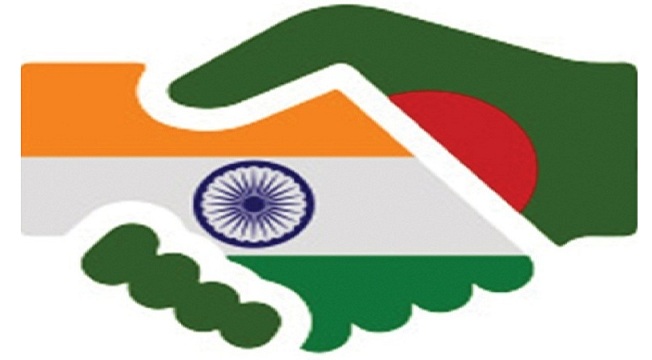
BD-India trade relations under strain

Bilateral trade between Bangladesh and India has run into a quagmire of late, especially following the novel coronavirus outbreak in Bangladesh in March this year.
From March until the first week of June, India suspended all trade activities with Bangladesh through land ports, which contributed to a wider trade gap between the two neighbouring countries.
According to the Bangladesh Bank's data, the bilateral trade volume between Bangladesh and India dropped to $421 million during the April-May period this year from $2 billion during the same time last year. As a result, imports and exports between the two countries, during the first five months of this year, almost halved.
However, Bangladesh's trade transactions, at the same time, increased with several countries – including China, the United States and Singapore.
Experts believe although India has been Bangladesh's main trading partner since independence, trade between them has steadily declined due to the former's tough stance and higher commodity prices.
During the three-month trade suspension, Bangladesh's customs and land ports were open but the Indian government's decision and a lack of interest of its traders led the local sides to shutter after keeping limited-scale operations going for a while.
When, on June 7, Bangladesh's main land port, Benapole, officially resumed trade activities with India, the Indian authorities refrained from taking goods from Bangladesh.
In protest, Bangladeshi traders went on strike last Wednesday and stopped importing Indian products. Benapole customs officials, too, expressed solidarity with the local traders and said they would not tax any goods until India agreed to Bangladesh's demands.
However, a joint meeting of businessmen from both countries led to a resumption of trade on Sunday.
According to the Export Promotion Bureau and the Bangladesh Bank, Bangladesh's trade with India declined by about 12 percent in 2019, compared to that of the previous fiscal year.
Bangladesh usually imports raw materials from India for its export-oriented sector – especially the garments industry. Apart from this, cars and a large quantity of machinery in the automobile industry come from that country.
Sheikh Fazle Fahim, president of the country's top business organisation – FBCCI – said efforts were being made to keep import-export activities afloat by overcoming the complexities with India. Exports have already started through Benapole port while imports will start as before.
The trade crisis with India is not going away due to costly transportation as all other land ports in the country are not effective, he commented.
According to the commerce ministry, due to: non-operation of immigration check-posts on the Banglabandha-Phulbari border, poor infrastructure at the Burimari-Chengrabandha and Tamabil-Dauki land ports, the non-launch of a fast air service between Dhaka and Guwahati, and non-establishment of naval protocol on Brahmaputra river, bilateral trade with India is not growing at the expected level.
The other reasons include a lack of improvement of rail connectivity, the non-introduction of coastal shipping and non-establishment of large numbers of border huts.
However, Md Obaidul Azam, additional secretary of the commerce ministry, said efforts are being made to solve all these problems.
Distinguished Fellow of Centre for Policy Dialogue Mostafizur Rahman said the cost of transporting goods from Dhaka to Delhi is much higher than the transport cost from Dhaka to European or US ports – although Bangladesh has an opportunity to enjoy a lower cost from India.
"The effectiveness of trade-connectivity depends on that of transport, investment and logistics. As part of the Safta [South Asian Free Trade Agreement], India provides duty-free and quota-free facilities to Bangladesh in the former's market. However, the latter is not able to utilise it."
He also said Bangladesh's policymakers must formulate an integrated strategy in view of the developing economic ties with India and China.
Overall, it seems that, in the long run, positive changes are going to take place in Bangladesh-India relations. If Dhaka wants to take full advantage of the potential of a relationship, it will have to go a long way, he added.
Import-export resumes through Benapole
Imports and exports through the Benapole-Petrapole border crossing point resumed on Sunday, confirmed Additional Commissioner at Benapole Customs Dr Syed Niamul Islam.
Import-export activities between the two countries will be in full swing from Monday.
Dr Syed Niamul Islam said, "Five truckloads of goods were exported to India on Sunday afternoon."
"Some trucks with goods for import will enter the port after dusk. From now on, trade between the two countries will co
Editor & Publisher: S. M. Mesbah Uddin
Published by the Editor from House-45,
Road-3, Section-12, Pallabi, Mirpur
Dhaka-1216, Bangladesh
Call: +01713180024 & 0167 538 3357
News & Commercial Office :
Phone: 096 9612 7234 & 096 1175 5298
e-mail: financialpostbd@gmail.com
HAC & Marketing (Advertisement)
Call: 01616 521 297
e-mail: tdfpad@gmail.com